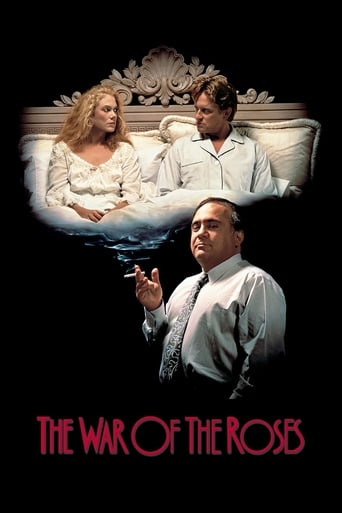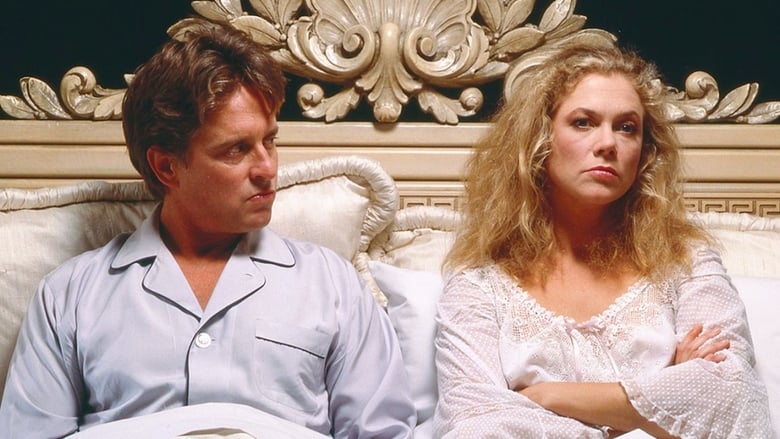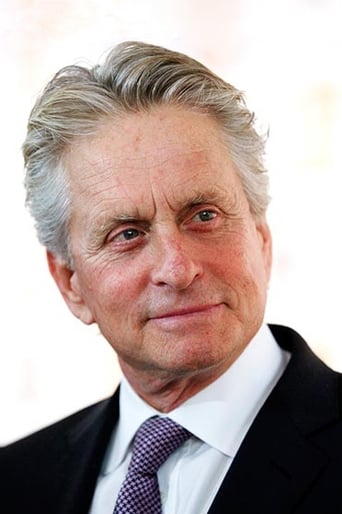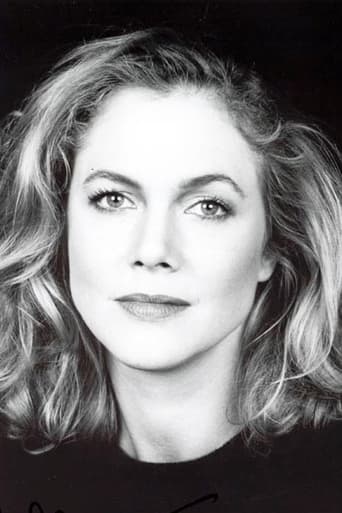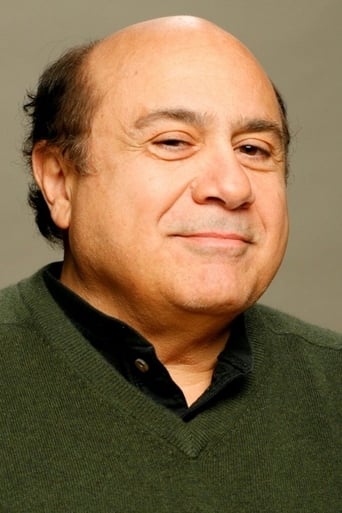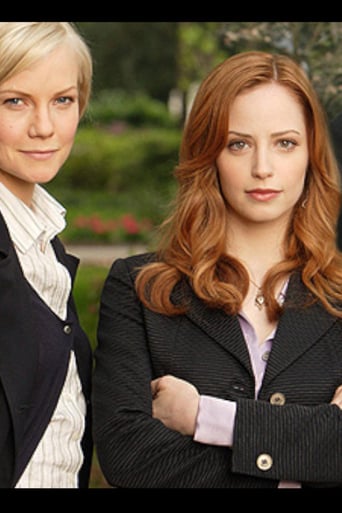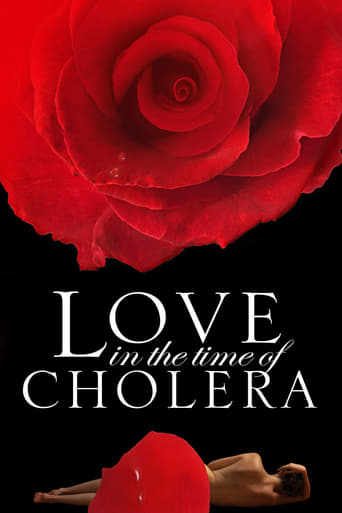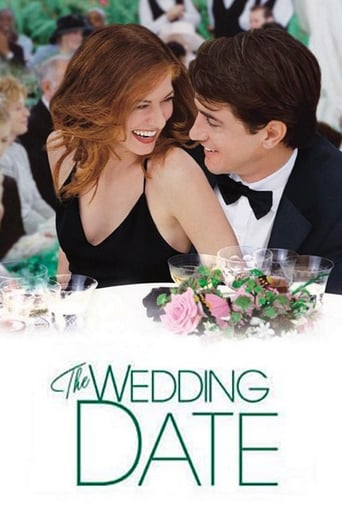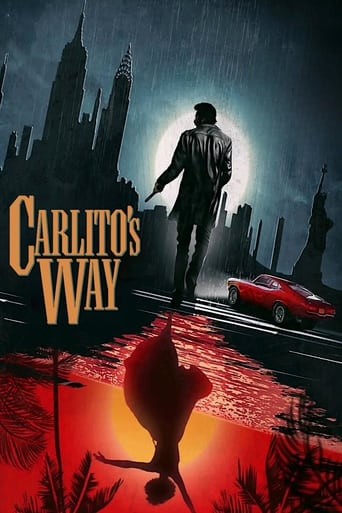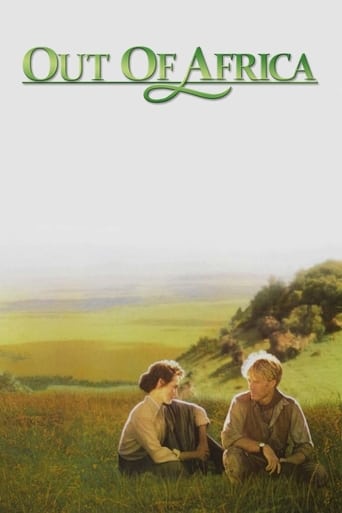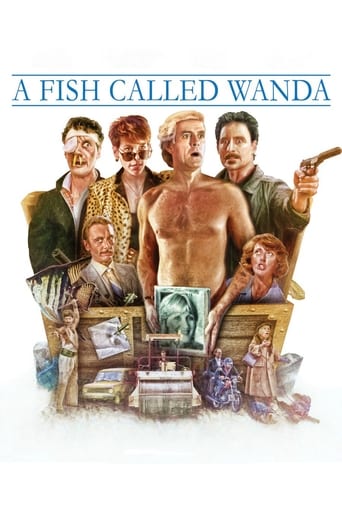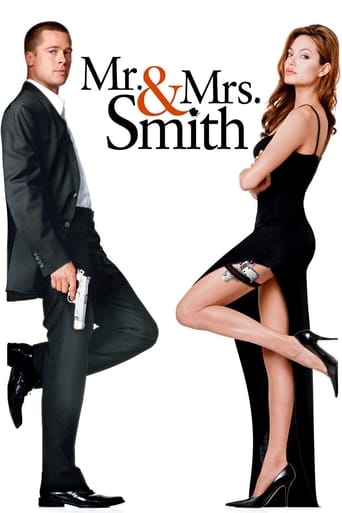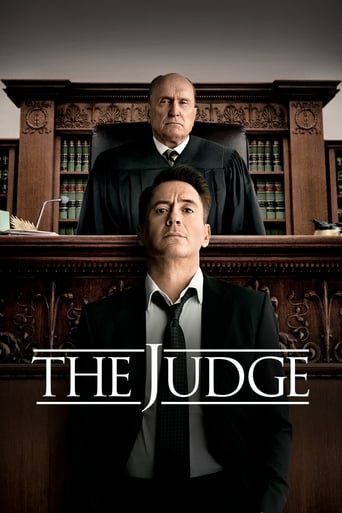The War of the Roses (1989)
The Roses, Barbara and Oliver, live happily as a married couple. Then she starts to wonder what life would be like without Oliver, and likes what she sees. Both want to stay in the house, and so they begin a campaign to force each other to leave. In the middle of the fighting is D'Amato, the divorce lawyer. He gets to see how far both will go to get rid of the other, and boy do they go far.
Watch Trailer
Cast


Similar titles
Reviews
Usually, the romance story is a fairy tale. Here it's a scary and bloody break-up: I can't say that i found that funny, especially when the characters are neatly defined: Katlheen wants her freedom while Michael expects undying love. It was also painful to follow as it's 2 hours and it's a bit long. However De Vito is really inspired as a director (as well as a cool actor): i got the feeling that he did it as a dark tale and with some strange camera work and his exterior narration, it looks like a Tim Burton movie (except the fantastic ingredient). In addition, this big mansion is really fit to become a battlefield so i could watch it entirely! NB: i expected the scene in which they divide their house by painting frontiers and i didn't see it, also in the trailer: Did i dream it ???
... and in the end they cook and eat each other, not the dog. That is the long and short of this film and would have made a good epitaph for both of them. Five years earlier, in 1984, Michael Douglas and Kathleen Turner had teamed up for the wonderful "Romancing the Stone". As for the sequel...we won't go there. Now they have aged a few years and are playing Oliver and Barbara Rose, a couple on the cusp of middle age. The film starts out with Danny DeVito's character, Gavin, an expensive DC divorce lawyer, describing to a client how he should be generous to the point of pain to the wife he is about to divorce. He tells him how the story of Oliver and Barbara Rose changed him from being a cutthroat attorney to what he is today.So the story starts out with their meeting as young people. You know, even from the beginning, the warning signs are usually there, and in Oliver's case, anybody who introduces himself as a genius who is going to be rich and famous someday is probably not going to care too much about his spouse's opinion, and you'd be right.Time passes. Oliver does become the wealthy attorney and the Roses buy the big house in the city. Barbara spends all of her time collecting antiques and keeping up the house. Once her two children get big enough to not really need her anymore, she decides to go into catering - she has become an excellent cook, plus she has cultivated many influential friends through the years in Washington. To celebrate the launching of her new career she buys a monster truck. Oliver belittles her efforts and asks how many hundreds of meals will she have to cater to pay for that truck? You can tell that this is the last of many straws. But it's not until Oliver thinks he has had a heart attack and Barbara feels relief rather than grief upon the news that she realizes the marriage is over.She tells him she wants a divorce. He refuses to believe she would ditch such a wonderful guy as himself. He gets Gavin to act as his attorney and finds out about an old law that allows people to stay in the house while the divorce is being processed. They snipe at each other in a hundred different ways that I'll let you watch and see for yourself.Ultimately, Barbara tells Oliver an untruth, one so horrifying that for the first time Oliver becomes violent. Oliver barricades them both inside the house and they spend the night in actual combat. I'm not so sure he wants to kill her so much as he wants to capture her, because ultimately he wants to keep her. But Barbara's actions leave no doubt she is trying to kill him, because ultimately she wants to be rid of him. In the end they die in the most ironic way possible. With their dying breath he clutches her hand in his, she shoves it away.Basically this is an exaggeration in action but not attitude of your typical divorce story involving any two people who spent decades together and were truly in love once. You can't do what these two people did to each other and not have been madly in love at one time. As they say, the opposite of love is not hate, it's indifference.Let me say something about the book this film was based upon - Danny DeVito REALLY wanted Barbara to cook that dog. However, people convinced him that Barbara would have lost all sympathy if she had intentionally killed an innocent dog and fed him to her husband as pate. She would have come across as mean not insane. I know that his advisors were correct.One thing not shown, maybe just to keep the audience curious, was - who did Gavin marry? We hear him talking lovingly to his wife at the end of the film, saying he'll be home soon. Remember, Gavin was a player and one that only liked the leggiest of blondes prior to the death of the Roses. I'll tell you who that was - it was Susan, the Roses' live in housekeeper who was going to college part time, was very sweet and intelligent, but seemed to be nearing 40 and was not physically attractive in the conventional sense at all. I think the film left that part a mystery just so you could fill in the blanks for yourself, plus it gives you something extra to talk about after the film.I highly recommend this one.
Danny DeVito directs and co-stars in this 1989 comedy starring Michael Douglas, Kathleen Turner and Dan Castellaneta based on the novel. This takes place in Washington, D.C. where we meet attorney, Gavin D'Amato (DeVito) who tells the story of ill-fated, married couple, Oliver (Douglas) and Barbara (Turner) Rose to a new client (Castellaneta). He begins with when they first meet to their troubled 18-year marriage ending in a tragic battle over their house. Oliver was a Lawyer, Barbara owned her own catering company and they had 2 children. Douglas, Turner & DeVito are terrific in this and David Newman's score is great as usual. I recommend this great comedy.
Cinema provided countless examples of unforgettable love stories: Tony and Anita, Rick and Ilsa, Oliver and Jenny; which indirectly begged for a film that would finally pay tribute to the opposite feeling, the so-underrated hatred. And on that level, Danny De Vito, the director, did one hell of a job. In "Throw Momma from the Train", De Vito had already established his capability to mix between dark humor and Oedipian issues, in "The War of the Roses", the comedic aspect on which relies the greatness of the film, fails to hide its intelligent sociological commentary on marriage, and whatever can build it or make the most solidly built one literally collapse."The War of the Roses": the title is ironically very poetic as if it deliberately conveyed the ambiguity between love, flame and passion (roses) and probably the most violent, absurd yet representative constituent of humanity: the exercise of war. Indeed, and it's one of the strengths of the script, the hatred between Oliver (Michael Douglas) and Barbara Rose (Kathleen Turner) is never detached from the passion that made the love story possible, and this is essential to understand why the level of violence graduated in such a spectacular and disturbing way. On the surface, the story of the Roses is told from a divorce lawyer trying to convince a client that divorcing can be costly on many unsuspected levels. Fittingly, Danny De Vito uses a very solemn and almost stereotypical voice to introduce the couple; whose story starts as a fairy tale: Oliver and Barbara meet in an auction, and spend a romantic rainy evening followed by their most intense sex ever. Barbara decides that night that either it would be the most romantic night of her life, or she'd be the slut of all-time, Oliver can't picture himself with another woman the romance begins.Everything in the picture looks so perfect, to comfort that fairy tale aspect, but there's something cleverly hiding behind the scenes, something that becomes more and more obvious as time goes by. Barbara is romantic and passionate, Oliver is caring and pragmatic, it seems so benign in the beginning but progressively, these aspects of their personalities trace two opposite roads that would shortcut any possibility of a durable relationship. Barbara is the typical housewife caring, furnishing and decorating the house she discovered herself, until it became the perfect home for the perfect happy family, while Oliver worked on the 'funding' department, and hard enough to get the money to achieve his personal success, correctly earning what his wife would spend for the family's sake. Somewhere in between, despite all the decent and good intentions, the passion is slowly fading, making more visible whatever separates Oliver and Barbara; from their visions of life to details as significant as the animal pets they chose for company and little by little, we witness the erosion of a perfect model of stability.Interestingly, the movie's apparent neutrality doesn't deprive it from an intelligent dose of objectivity depending on the gender's perspective. The point is not to admit that Oliver loved Barbara and she was the one who started hating him, or that he was a selfish jerk and she was a collateral damage of his ambition, I think what the film achieves to accomplish is to make us root for the opposite gender, or at least try to understand what went wrong from the other side. I watched the film with my girlfriend expecting her to root for Barbara while she was on Oliver's side, as a reaction, I tried to understand Barbara and the diagnosis I came with is that she sacrificed an exhilarating feeling of freedom to build a family, and while she never doubted her husband's true love, she felt like he was loving his idea of the couple, more than the couple itself. Oliver loved an entity emptied from its passionate core and Barbara couldn't endure a loveless life. The performances of both Michael Douglas and Kathleen Turner are the perfect spice for a story that could have been insipid otherwise. Douglas is brilliant as a tender but laughably self-centered jerk while Turner pushes a certain level of sexy deliberate evilness as the counterpart of twenty years of eternal docility.The performances, the set-up, efficiently works to create an unforgettable third act, when the war can start, and if the movie doesn't avoid some predictable or over-the-top situations, it remains faithful to its own premise by showing how far a couple can go during a divorce. At one point it get so chaotic that we might find it unrealistic but that's only if we consider it as a movie about divorce, when it's more about love and hate. Neither of them want to give up the house, not because it would be economically unacceptable, but for a simple matter of territoriality. And when money stops to be the main motive, when it's for such principles, when there's no way to reason each of the two protagonists, when basically both of them have nothing to lose, then the effects can become devastating. And the film is so dark and perverse, than it doesn't leave us with much optimism about the fate of Oliver and Barbara Rose.Love and hate are fruits from the same tree and I guess one can't intensely hate a person if he hasn't experienced a totally opposite feeling. Passion is the driver of the most inspiring emotions but it also works as a double-edged sword when its effect is injected in our most negative thoughts. We hate someone we loved for having fooled us, and make us waste our lives, and life is too precious to be wasted. Hatred is driven by an attachment to our lives' ideals, and when these ideals are ruined, yesterday's beloved become today's enemy... and enemy is the right word for we're talking of a war, "The War of the Roses", Danny DeVito's black comedy gem.

